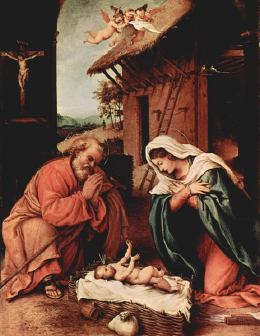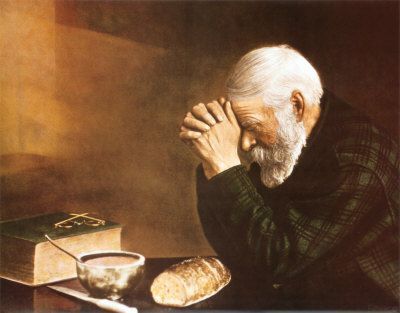The grace of the Lord Jesus Christ, and the love of God, and the communion of the Holy Spirit be with you all. Amen, (2 Corinthians 13:14).
Trinitarian. The Christian doctrine of the Trinity boldly declares the equality of the Three Persons and the right of the Holy Spirit to be worshipped and glorified. Anything less than this is something less than Trinitarianism. The Pursuit of Man, 60-61 by A.W. Tozer These words of wisdom from Tozer are probably one of most crucial aspect that is ignored in order to walk a true path with Christ. The entire subject matter concerning the need to be empowered and guided by the Holy Spirit is too often ignored. There are well-intended Christians who preach and teach varying doctrines (as they interpret the word of God) who fail to trust in Holy Spirit confirmation. Even the most educated and studious teacher-preacher-evangelist-minister who claims to follow Christ seldom sits back before or after studying the word of God and pray seeking Holy Spirit confirmation, and then (unwittingly or purposefully) writing or commenting on what they have read or studied. In their haste and enthusiasm to share what they believe is new found truth, they oftentimes rush to publish their views without first consulting the Holy Spirit. Unlike many dedicated scholars who go as far as sharing their information with other scholars to get their opinion, and then take those findings to the Holy Spirit for confirmation, independent prophets rush to publish rather than being open to advice from other like-minded disciples.
These words of wisdom from Tozer are probably one of most crucial aspect that is ignored in order to walk a true path with Christ. The entire subject matter concerning the need to be empowered and guided by the Holy Spirit is too often ignored. There are well-intended Christians who preach and teach varying doctrines (as they interpret the word of God) who fail to trust in Holy Spirit confirmation. Even the most educated and studious teacher-preacher-evangelist-minister who claims to follow Christ seldom sits back before or after studying the word of God and pray seeking Holy Spirit confirmation, and then (unwittingly or purposefully) writing or commenting on what they have read or studied. In their haste and enthusiasm to share what they believe is new found truth, they oftentimes rush to publish their views without first consulting the Holy Spirit. Unlike many dedicated scholars who go as far as sharing their information with other scholars to get their opinion, and then take those findings to the Holy Spirit for confirmation, independent prophets rush to publish rather than being open to advice from other like-minded disciples.
Sadly, there are many ersatz prophets who actually claim they received esoteric visions and data from God that supports a unique doctrinal position that (if examined carefully) would not pass canonical muster. Therefore, it behooves ALL folks to be willing to share and compare (not debate and argue) information they may have gleaned from the Bible to test its veracity. Most of the time, this may include deep study into the exact meaning of certain words in scripture, and also comparing those words with how they may be used in other verses. In the Greek, the word topos is rendered as room, place, opportunity, condition, and license to describe a position or condition which a person occupies. For example, in describing what a particular person means to me, I can say, I have a special place in my heart for Mary or Joseph. This doesn’t mean that Mary or Joseph can actually and physically occupy their total persona inside my heart, but from a conditional perspective, they been afforded an opportunity, or have the license to be part of my life.
This same word topos is used in John 14:2 where Jesus said, In my Father's house are many mansions: if [it were] not [so], I would have told you. I go to prepare a place (topos) for you. Many people interpret the word place here to mean a room, an abode, a mansion, a chamber, a house or a castle, when in reality Jesus is not stating He is in Heaven like some maid getting our lodging in order, He is currently preparing (as He records our deeds for) a positional status in His kingdom, which will be assigned at a level according to our accomplishments in His service:
His lord said unto him, Well done, good and faithful servant; thou hast been faithful over a few things, I will make thee ruler over many things: enter thou into the joy of thy lord, (Matthew 25:23).

We see the same confusion as we read the story about the baby Jesus in Bethlehem in Luke 2:7, as Mary gave birth to her firstborn son; and she wrapped Him in cloths, and laid Him in a manger, because there was no room for them in the inn. Understanding the deeper meaning of the word room as is used here, the word for room is topos which conveys more so that it wasn’t a case of there being no rooms available, but rather that Mary, Joseph and the baby Jesus were actually not afforded the opportunity to stay at the Inn. This is understandable for several reasons, one that King Herod was seeking the baby to kill him, as well as the fact that Joseph and Mary were not married and the Inn keeper could very well say the couple had moral issues he didn’t want to deal with in his reputable establishment. Maybe they didn’t have the funds. Regardless, the word topos has more to do with opportunity (or lack there of) to stay at the Inn as opposed to what most surmise that there were no rooms (Greek: tameion = a room or a chamber) available.
Nevertheless, one can see by these two example how easily a student of the Bible could render an altered perspective on just one verse by not having a true understanding of what the original word truly means and how it has been used in other verses. Many a doctrine has sprouted throughout history on such unsubstantiated foundations, and it continues to this day.

Therefore, whereas a sound hermeneutical and exegetical formula or system has been considered when Bible students (and scholars) attempt to arrive at a more succinct meaning to certain scripture, even after doing all of this work, we must continue to go to the Holy Spirit and pray for His confirmation.
In this day in age, with the conveniences of the internet, Ipods, cell phones and other electronic gadgetry to assist us and get our views in the public arena much faster than say fifty or even a hundred years ago, preachers-teachers-ministers-evangelists and all who proffer doctrine to the general public, should take time before publishing their views for public consumption. They should pray and wait until they have received that moment of peace, tranquility and assurance that only the Holy Spirit can provide as confirmation the knowledge we pass on to others is correct. We may be surprised to know and realize that it’s really time to go back to the drawing board and reconsider what we think may be Gospel truth.
There are way too many variations and self interpretations of God’s word being presented to the church nowadays that is mere conjecture and assumptions being proffered by many preachers and teachers who have not done enough deep study, nor prayed for Holy Spirit confirmation; but yet preach and teach various doctrines as if they are Gospel truth. The sad part of this is their audience accepts it as Gospel truth and unwittingly pass that erroneous information to others.

Is what we present to others truly the work of the Holy Spirit or is it merely our intellect, which can be mere soothing rhetoric intended to earn points from our respective audience? Remember! Only the Holy Spirit can confirm God’s truth.
For information about the author and his two books, click on The End Times Passover and Why Christians Will Suffer "Great Tribulation" To access the author’s web sites and blogs, click on Joe Ortiz.
Trinitarian. The Christian doctrine of the Trinity boldly declares the equality of the Three Persons and the right of the Holy Spirit to be worshipped and glorified. Anything less than this is something less than Trinitarianism. The Pursuit of Man, 60-61 by A.W. Tozer
Sadly, there are many ersatz prophets who actually claim they received esoteric visions and data from God that supports a unique doctrinal position that (if examined carefully) would not pass canonical muster. Therefore, it behooves ALL folks to be willing to share and compare (not debate and argue) information they may have gleaned from the Bible to test its veracity. Most of the time, this may include deep study into the exact meaning of certain words in scripture, and also comparing those words with how they may be used in other verses. In the Greek, the word topos is rendered as room, place, opportunity, condition, and license to describe a position or condition which a person occupies. For example, in describing what a particular person means to me, I can say, I have a special place in my heart for Mary or Joseph. This doesn’t mean that Mary or Joseph can actually and physically occupy their total persona inside my heart, but from a conditional perspective, they been afforded an opportunity, or have the license to be part of my life.
This same word topos is used in John 14:2 where Jesus said, In my Father's house are many mansions: if [it were] not [so], I would have told you. I go to prepare a place (topos) for you. Many people interpret the word place here to mean a room, an abode, a mansion, a chamber, a house or a castle, when in reality Jesus is not stating He is in Heaven like some maid getting our lodging in order, He is currently preparing (as He records our deeds for) a positional status in His kingdom, which will be assigned at a level according to our accomplishments in His service:
His lord said unto him, Well done, good and faithful servant; thou hast been faithful over a few things, I will make thee ruler over many things: enter thou into the joy of thy lord, (Matthew 25:23).
We see the same confusion as we read the story about the baby Jesus in Bethlehem in Luke 2:7, as Mary gave birth to her firstborn son; and she wrapped Him in cloths, and laid Him in a manger, because there was no room for them in the inn. Understanding the deeper meaning of the word room as is used here, the word for room is topos which conveys more so that it wasn’t a case of there being no rooms available, but rather that Mary, Joseph and the baby Jesus were actually not afforded the opportunity to stay at the Inn. This is understandable for several reasons, one that King Herod was seeking the baby to kill him, as well as the fact that Joseph and Mary were not married and the Inn keeper could very well say the couple had moral issues he didn’t want to deal with in his reputable establishment. Maybe they didn’t have the funds. Regardless, the word topos has more to do with opportunity (or lack there of) to stay at the Inn as opposed to what most surmise that there were no rooms (Greek: tameion = a room or a chamber) available.
Nevertheless, one can see by these two example how easily a student of the Bible could render an altered perspective on just one verse by not having a true understanding of what the original word truly means and how it has been used in other verses. Many a doctrine has sprouted throughout history on such unsubstantiated foundations, and it continues to this day.
Therefore, whereas a sound hermeneutical and exegetical formula or system has been considered when Bible students (and scholars) attempt to arrive at a more succinct meaning to certain scripture, even after doing all of this work, we must continue to go to the Holy Spirit and pray for His confirmation.
In this day in age, with the conveniences of the internet, Ipods, cell phones and other electronic gadgetry to assist us and get our views in the public arena much faster than say fifty or even a hundred years ago, preachers-teachers-ministers-evangelists and all who proffer doctrine to the general public, should take time before publishing their views for public consumption. They should pray and wait until they have received that moment of peace, tranquility and assurance that only the Holy Spirit can provide as confirmation the knowledge we pass on to others is correct. We may be surprised to know and realize that it’s really time to go back to the drawing board and reconsider what we think may be Gospel truth.
There are way too many variations and self interpretations of God’s word being presented to the church nowadays that is mere conjecture and assumptions being proffered by many preachers and teachers who have not done enough deep study, nor prayed for Holy Spirit confirmation; but yet preach and teach various doctrines as if they are Gospel truth. The sad part of this is their audience accepts it as Gospel truth and unwittingly pass that erroneous information to others.
Is what we present to others truly the work of the Holy Spirit or is it merely our intellect, which can be mere soothing rhetoric intended to earn points from our respective audience? Remember! Only the Holy Spirit can confirm God’s truth.
For information about the author and his two books, click on The End Times Passover and Why Christians Will Suffer "Great Tribulation" To access the author’s web sites and blogs, click on Joe Ortiz.

I marvel at the depths of spiritual knowledge that you have in this blog of yours, Bro. Joe. Speaking of the trinity, I recall talking with a Jewish lawyer years ago who happened to be in my home on a business matter. Before he left I felt led to witness to him. Knowing that he believed in an indivisible, non-trinitarian God, I brought up Isaiah 48:16 and read it from my copy of the Jewish Bible which has only the Old Testament. This is known as the Masoretic Text and it states that personal pronouns that are capitalized refer to deity, and this Isaiah text capitalizes the word "me" in the Masoretic which is non-capitalized in the King James Version. The verse ends by saying that "the Lord God, and his Spirit, hath sent me." I said to the lawyer, "In this verse in your Bible are three distinct persons including the "me" which is capitalized - three distinct persons and they are all God!" The lawyer was amazed and said that he had never known of that verse. And in Genesis where in 1:26 the Lord says "Let us make man in our image, after our likeness," He doesn't say "Let me make man in my image" but employs a plurality expression which hints at the Christian trinity. Thanks, Joe, for not only being an in-depth scholar but also causing your readers to think in-depth thoughts. Lord bless. Chuck
ReplyDeleteTHUMBS UP!
ReplyDelete